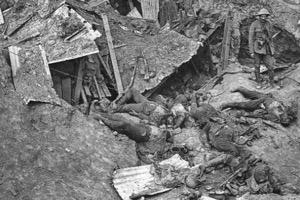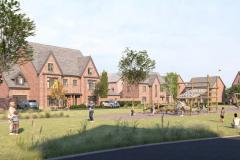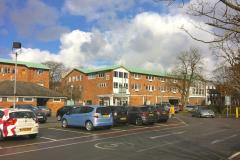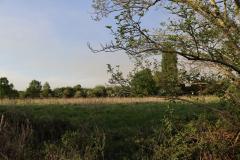
The first 3 months of the New Year were mercifully to be "thankful" with no local fatalities. However, in the dreadful year to come the greater Wilmslow community would lose 42 young men, including 15 in July alone - the first month of the battle of the Somme.
Whilst things were quieter on the war front, changes were happening at home. In 1916 conscription and conscientious objection entered British life. In August 1914, Secretary of State for War, Lord Kitchener had summoned volunteers to serve through his iconic poster.
One million men responded in a wave of patriotic enthusiasm, often enlisting together in "Pals Battalions" of friends, neighbours and colleagues - one of the most famous being the 11th battalion of the East Lancs known as the Accrington Pals. By the end of 1915, however, it had become clear that with mounting casualties, volunteers could not sustain a long-term military effort. (We'd lost 460,000 casualties - dead, wounded or missing - by then.) The 1915 mandatory National Registration of all able bodied 15 - 65 year olds and Lord Derby's voluntary attestation scheme of single men were partially successful - only half of the single men responded.
In early January 1916 therefore, despite huge splits in the Coalition government and widespread opposition especially from the labour movement, Asquith proposed the Military Service Bill. All single men aged 18 - 41 would be deemed eligible for military call-up - it became law in March. A second act was passed in May 1916 extending it to married men. (In the last months of the war the age limit was raised to 51.)
There were exclusions. Exemption was allowed for the medically unfit, clergymen, teachers and reserved "starred" occupations and those with domestic responsibilities. A network of local Military Service Tribunals was set up to consider all objections, including appeals on the grounds of morality and principle. We were the first country to offer exemption to "conscientious objectors" or COs. By the end of the year, 770,000 were conscripted, but a further 750,000 appealed. (Additionally 1.4 million were exempted in "starred" occupations.)
Eventually 16,500 were recognised as COs. Not a great number considering the 6 million who served, but their impact on public opinion and future governments was to be profound. The group incorporated Pacifists, Christian Fundamentalists, left-wing political thinkers and libertarians. The tribunals offered them various alternatives. Seven thousand served as "non-combatants" in the army mainly as much respected RAMC stretcher bearers.
Another 3,000 "alternativists" were allowed to carry out work of national importance eg farming, outside of military control. The Society of Friends volunteered for their own Quaker Field Ambulance Unit (FAU) in France. A further 6,000 were offered prison or work camps. These included 1,330 "Absolutists" who refused to accept any orders and were therefore imprisoned in such places as Richmond Castle, Wormwood Scrubs and Dartmoor. The appalling conditions there reflected the prevailing mood of the times. Many of those guarding them had lost friends and relatives in the horror of the trenches. At least 73 detainees died.
The old county of Cheshire had about 330 COs, including the first to die - Walter Roberts of Bredbury. Walter was sent to undertake 10 hour rock breaking shifts with 250 others at the harsh Dyce Camp quarry near Aberdeen. He died from pneumonia on 8th September, aged 19.
Vilified during the war and for years afterwards, "the conchies" are now widely regarded as having considerable courage in defying the prevailing opinion. There is a memorial stone to them in Tavistock Garden Square dedicated on 15th May 1994.
Jon Armstrong and Alan Cooper, Wilmslow Historical Society.










Comments
Here's what readers have had to say so far. Why not add your thoughts below.
It is important to note that ALL men claiming exemption had to appear before the tribunals, not just those who objected to service on grounds of conscience. The Wilmslow tribunals dealt with upwards of 30 men each week from March 1916 onwards. There were 25 men in the Wilmslow and Macclesfield area known to have been conscientious objectors, half of whom were 'absolutists'. They were arrested for refusing to serve, fined and sent to prison. Nationally, the number of conscientious objectors in WW1 is now estimated to be over 20,000.
East Cheshire Quakers have organised several events at Macclesfield Library throughout February 2016 to coincide with the anniversary of Conscription, featuring local families and the decisions they faced – “War And Conscience: Choices Then and Now,1916-2016”. More details at Macclesfield Reflects http://tinyurl.com/jrjxemw